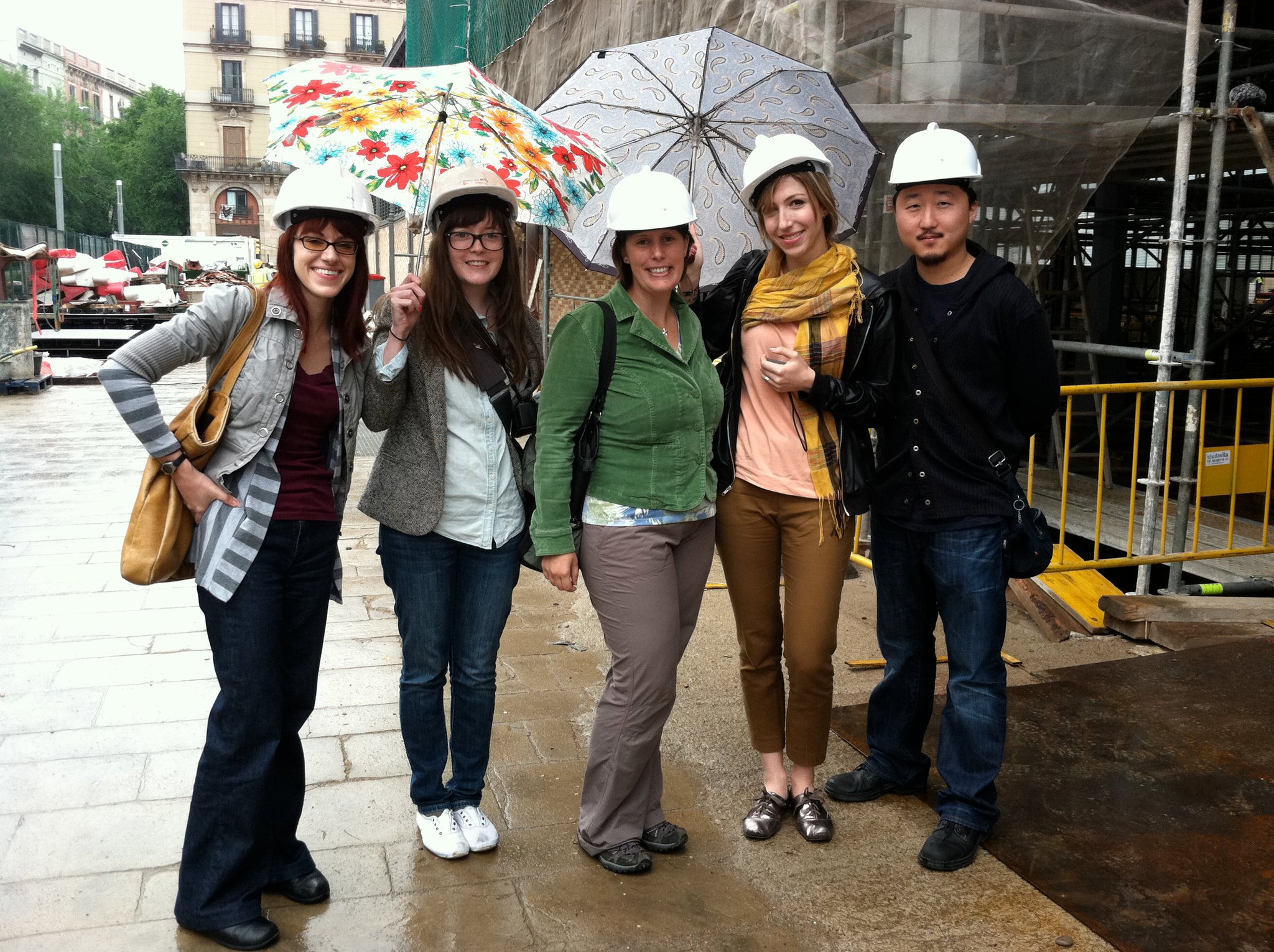Background on European Field Studies Program

Field study in Barcelona, 2011: Dana Johnson, Grace Cleary, Jill Bierly, Mackenzie Jackson, Seung ho Chung
The European Field Studies Program (EFS) in the Department of Anthropology stands as the most enduring international graduate training experience at the University of Massachusetts Amherst. The program celebrates its 50th anniversary in 2019-20. It counts approximately 180 graduate students among its alumni.
European Field Studies traces its roots to 1969-70, a critical moment in the history of anthropology, as the field was turning away from studying non-Western "exotics" to focusing on Europe's so-called people without history such as peasants, workers, women, youth, ethnic/racial minorities, and immigrants.
Faculty members Joel M. Halpern, Oriol Pi-Sunyer, and Zdenek (Denny) Salzman collaborated in writing a proposal to support students in conducting semester-long field-based research. Over the decades, training evolved into a three-course sequence: proposal design, fieldwork experience, and data analysis. Students also received experience presenting research proposals and post-fieldwork findings to the UMass community as well as at professional conferences. Faculty members from all subfields of anthropology rotated into the program as supervisors. From the beginning, the program included a modest stipend for faculty to spend a semester in Europe at the same time as students so as to provide mentoring through site visits and workshops.
The initial proposal in the late 1960s was coordinated with the "Freiburg Program" in what became the German and Scandinavian Studies Department at the University of Massachusetts. It built on an exchange program with universities in Baden-Württemberg, Germany, established in 1964. The University of Freiburg in Freiburg, Germany, was identified to serve as the first exchange site with the Anthropology Department beginning in Spring 1970. Two years later, in Spring 1972, UMass provided funding for a faculty teaching exchange with the host university, a practice that survived for nearly a decade.
Throughout the years, other institutions became partners and hosted retreats or conferences with local anthropologists for students participating in the program. These include the Museo degli Usi e Costumi della Gente Trentina in San Michele all'Adige, Italy, from 2001-2004, Central European University in Budapest, Hungary, from 2005-2007, Universitat de Barcelona in Barcelona, Spain, from 2011-2016, and the University of Deusto in Bilbao, Spain, in 2013.
The field studies training has changed in structure through the history of the program, sometimes being organized around a location (1970s), and other times around a theme (2010s). The student proposals in the collection reflect these variations and include research on social memory, economic crisis, value, social movements, nationalism, stress and industrialization, trade, material culture, tourism, language and identity, immigration, to name a few. From 2010-17, the program was funded through two training grants for international experiences from the National Science Foundation under the overarching theme of Cultural Heritage in European Societies and Spaces, or CHESS. Co-Principal Investigators were Krista Harper and Jacqueline Urla; Elizabeth (Betsy) Krause and Julie Hemment also rotated in as field supervisors. (The 2010-2013 program was funded through NSF Award Number: OISE-0968575; the 2013-2017 program was funded through NSF Award Number: IIA-1261172.)
In addition to the training, under the leadership of Program Director Jacqueline Urla, the European Field Studies program initiated an Annual Distinguished Lecture in the Anthropology of Europe in 1996. This lecture is often co-sponsored within the Five College Consortium and reflects contemporary trends in the field. The first invited lecturers were Michael Herzfeld (Harvard University), followed by Begoña Aretxaga (Harvard University), and Barbara Bender (University College London).

